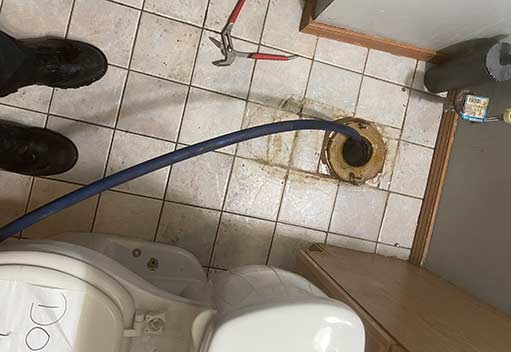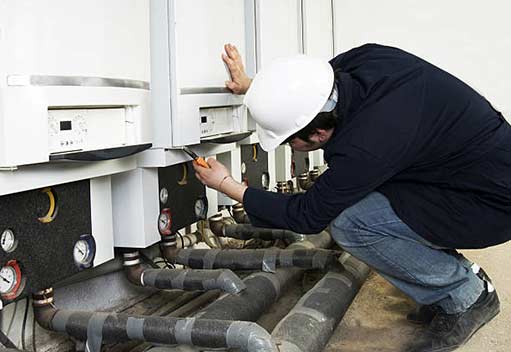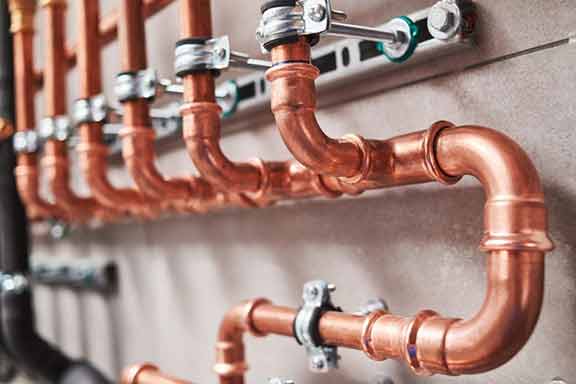Problems in the plumbing system of a commercial building are costly for the business on that premises. Whether the problem is a slow drain, clogged toilet or sewage odors in the building, they can impair your productivity and interfere with the comfort of your customers.
Plumbing issues in your business premises make it appear less professional and unattractive to clients. According to The Maryland and Delaware Group Property Management, distractions from these problems can cost you more money in lost man-hours and opportunities, not to mention the cost of fixing those issues.
Yet the truth is that most of these problems don’t even have to happen. Most plumbing issues in commercial buildings are due to minor problems that were overlooked. These small issues are the root causes of the plumbing disasters that eventually happen in the building.
Importance of preventive plumbing maintenance
Most problems in your commercial building’s plumbing show you an early sign. The issue only escalates when those early signs are ignored. You can stop plumbing problems in your business premises if you know how to find them early and solve them quickly.
That is why it is essential to have a preventive plumbing maintenance plan for your building. Create this plan with the help of a qualified Chicago commercial plumber. The plumber should inspect your plumbing periodically to spot unfolding problems.
This step ensures your business operations are never interrupted by unexpected plumbing issues. You can operate with peace of mind, knowing that professionals will handle any problems in the building’s plumbing.
What are the signs that your business premises need the services of a competent commercial plumber immediately? Call a commercial Chicago plumber immediately if you have been struggling with the following signs on your business premises.

Frequent drain clogs can mean only one thing: a blockage deep inside your drainpipes, and past efforts to solve the problem have only provided a temporary respite.
7 signs of problems in your commercial plumbing systems
Recurring clogs
Frequent drain clogs can mean only one thing: a blockage deep inside your drainpipes, and past efforts to solve the problem have only provided a temporary respite. Typically, if the clog is near a drain opening, it can easily be removed using simple solutions. But if you have tried several times and the issue persists, your drain system needs a sewer camera inspection and maybe hydro-jetting.
Persistent leaks
Leaks that refuse to go away should be a source of concern. You can trace this problem to blockages in your water pipes, aging pipes or high-water pressure. It could also happen if your water pipes were not properly installed. The worst kinds of water leaks are those you don’t see; they can secretly damage your building for a long time.
Low water pressure
Low water pressure makes it hard to use the plumbing fixtures in your building, and it can affect the function of appliances. You can’t do much about low water pressure if the problem affects every building in the area. In that case, the issue is from the municipal supply. But if the problem is isolated to your property, it could be a sign of hidden water leaks or blockages in your pipeline.
Sewage odors
Sewage odor in or around your building is often a precursor to a sewer backup. Your building’s sewer system is sealed to prevent the escape of sewer gases. If you, your staff or customers can smell sewage on the premises, it means your sewer line has been compromised. The common cause of this problem is a clog inside the main sewer line.
Corrosion
Corrosion happens mostly in pipes and water heaters. Rust and corrosion are problems that can advance quickly if they are not dealt with immediately. If there is rust and corrosion in your plumbing, it will make the system fragile and prone to leaks and blockages. Rust and corrosion also create water quality issues.
Water contamination
This water quality issue can manifest as water discoloration or odors in your water supply. Water contamination happens when foreign materials enter your water pipes. Common causes of this problem are underground water pipe leaks which allow soil, bacteria and other contaminants to enter the water, as well as rust and corrosion.
Aging plumbing system
All the materials in your plumbing system have a timeframe within which they are at their best. After this period has passed, the materials in the plumbing will become increasingly unstable and prone to damage. If all or part of the plumbing in your building has reached the end of its projected lifespan, it is time to overhaul it.
If you’re experiencing any of these problems in your Chicago commercial building, the time to solve them is now before they explode into even bigger issues. The cost of delay could be major damage to your building or loss of business income. You don’t want that to happen.
Reach out to us today for commercial plumbing services in Chicago.

